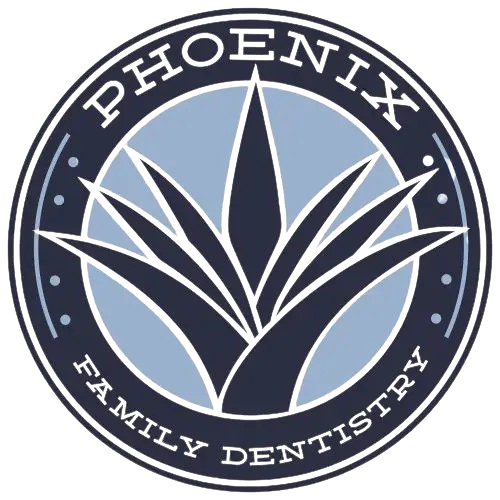Going to an Emergency Dentistry Clinic During COVID-19 for a Knocked-Out Tooth
Posted by Phoenix Family Dentistry
Dental Procedure
on Jul 14 2020, 01:08 AM
A knocked-out tooth, like any dental emergency, demands quick attention and a visit to an emergency dentistry clinic. With the lockdown in place due to COVID-19, it would help to know how you can care for your teeth and gums and what to expect when you finally get to see the dentist in Phoenix, AZ. In most situations, the steps you take in the moments following the emergency determines the outcome. The crucial part is to contact the dentist in 85053 immediately.
Dealing with a knocked-out tooth
If you experience a knocked-out tooth and need emergency dental care during the COVID-19 pandemic, it's essential to take certain precautions to protect yourself and others from potential exposure to the virus. Here are some steps to consider when going to an emergency dentistry clinic for a knocked-out tooth:
Contact the Dental Clinic: Before visiting the dental clinic, contact them by phone to inform them of your situation and inquire about their current protocols for emergency dental care during the pandemic. The dental staff can provide guidance on what to do next and any precautions you should take.
Follow Precautionary Measures: Be prepared to follow any precautionary measures recommended by the dental clinic, such as wearing a mask or face covering, practicing hand hygiene, and maintaining physical distancing in the waiting area.
Minimize Contact: Try to minimize contact with surfaces and other individuals in the dental office by avoiding touching unnecessary objects and maintaining distance from others in the waiting area.
Bring Necessary Information: Bring any relevant information with you to the dental clinic, including your medical history, insurance information, and details about the injury or knocked-out tooth. This will help expedite the check-in process and ensure that you receive appropriate care.
Handle the Knocked-Out Tooth Carefully: If possible, handle the knocked-out tooth carefully by holding it by the crown (top part) and avoiding touching the roots. Rinse the tooth gently with water if it's dirty, but do not scrub it or remove any attached tissue fragments. If feasible, try to reinsert the tooth into its socket and hold it in place by gently biting down on a clean cloth or gauze. If reinsertion isn't possible, place the tooth in a container of milk or saliva to keep it moist while transporting it to the dental clinic.
Prompt Treatment: Seek prompt treatment at the dental clinic for a knocked-out tooth, as the chances of successful re-implantation are highest within the first hour of the injury. The dental staff will assess the injury, provide appropriate treatment, and discuss options for tooth replacement or restoration if necessary.
Follow-Up Care: Follow any post-treatment instructions provided by the dental clinic, including recommendations for pain management, oral hygiene, and follow-up appointments. Be sure to attend any scheduled follow-up visits to monitor the healing process and ensure optimal outcomes for your oral health.
By following these steps and taking appropriate precautions, you can seek emergency dental care for a knocked-out tooth while minimizing the risk of COVID-19 transmission. It's important to prioritize your oral health and seek prompt treatment for dental emergencies, even during the pandemic. Call us to learn more.
First Aid
One can control the bleeding by biting down on a clean dressing or gauze. Pick the tooth by the crown and not the root to avoid infection. There is a chance to restore the tooth to its socket, but before then, the patient must keep it safe. It is possible to store the tooth in milk, egg white, or a clean cloth with the person’s saliva. The chances of restoring the tooth to its socket are higher if the patient gets dental care within an hour of the incident.
Some sources suggest trying to put the tooth back into place, but this may cause the victim to swallow the tooth accidentally. By using the options advised above and avoiding saline or alcohol-based solution, the tooth will remain intact with its nerve, with minimal touching of the tooth.
While going to an emergency dental clinic, one can use a cold compress to alleviate the pain and reduce any swelling around the affected part. If bleeding continues, placing pressure over the area with the gauze will help to stop or reduce the bleeding. Avoid eating or drinking anything, including medications, as it could disrupt the condition of the oral cavity.
At the emergency dental office, the dentist will assess the condition and restore the tooth to its position if possible. They will typically use splints for the tooth and support it to nearby teeth for a week or two. If the bone holding the tooth was affected, the splint might remain in place for six to 10 weeks. Root canal treatment is generally necessary for re-implanted teeth.
Stay informed
Accidents are mostly unpredictable, but one can take measures to minimize their occurrence. Avoid chewing or biting on hard substances, and remember, the teeth should not be used as a tool. Patients also need to learn how to emergency dentistry situations and protect themselves as the lockdown continues. If you experience a knocked-out tooth, reach out to the dentist immediately for recommendations. They will inform you of the necessary protocols to observe before coming to the dental clinic.
Request an appointment here: https://familydentistphoenix.com or call Phoenix Family Dentistry at (602) 547-9007 for an appointment in our Phoenix office.
Share On

How Long Is Recovery From a Root Canal?
A knocked-out tooth, like any dental emergency, demands quick attention and a visit to an emergency dentistry clinic. …

Can an Invisalign Dentist Correct Crooked Teeth?
A knocked-out tooth, like any dental emergency, demands quick attention and a visit to an emergency dentistry clinic. …

Caring for Veneers After a Cosmetic Dentist Treatment
A knocked-out tooth, like any dental emergency, demands quick attention and a visit to an emergency dentistry clinic. …





